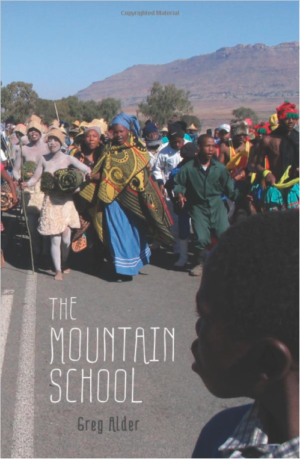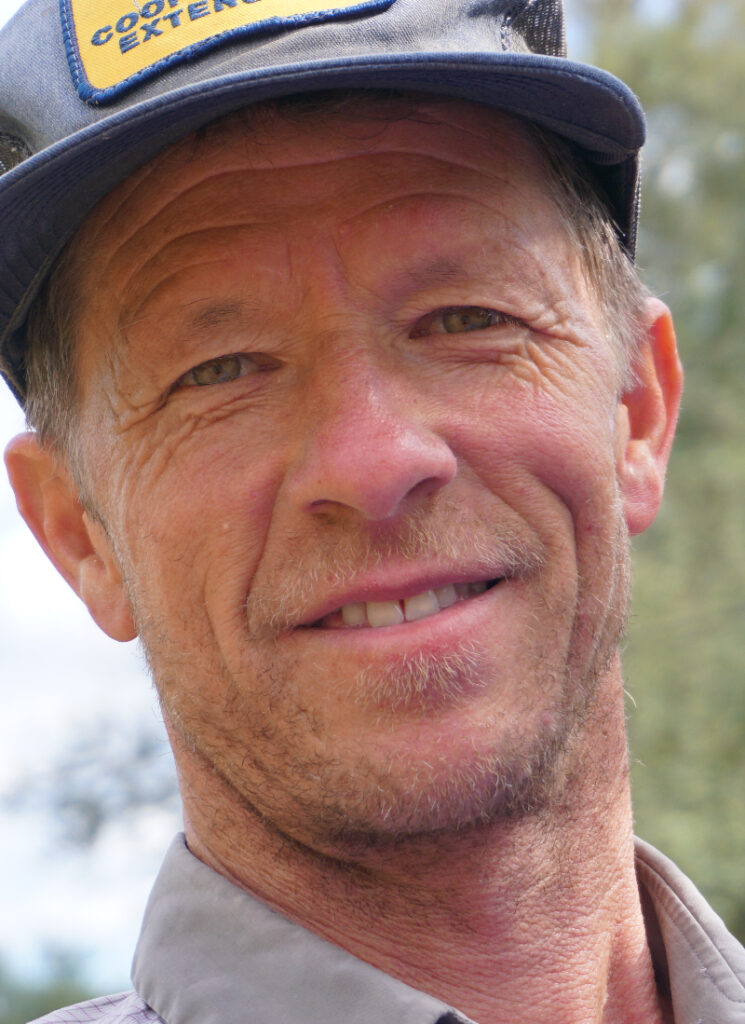Description
Reviews of The Mountain School:
Greg Alder has mastered portraying those (what I believe to be) universals of the Peace Corps experience. When I dove into The Mountain School, I was often transported back 15 years to my own experience. I relived some of those pit-in-your-stomach moments of being torn between two options and not knowing which to choose, as well as those deep-belly-laughing moments of connecting with my host family and friends.
The Mountain School starts with Alder’s arrival in Lesotho in 2003 as an English teacher. He lives close to but somewhat apart from the village of Tsoeneng, and becomes especially close with some of the students who board at the school. Many of his students are similar to him in age, which creates an interesting dynamic for him as a teacher. We witness his nervous preparation for first day of school, only to watch him teach nothing on that first day because that’s not how the first day of school works in Tsoeneng. And then he learns that every time it rains, it’s so prohibitively loud because of the metal roofs on the school buildings, that he can’t teach then either. He is quickly forced to adapt. But he’s not always happy about it.
It is fascinating to see how he deals with this and many other situations. He is brutally honest with himself and his readers and tells us even of things about which he is not proud. He is at times judgmental, open-minded, conflicted, happy, determined, easy-going, and frustrated. He shows us the good and the bad. He shows us that Peace Corps is a full life experience, not just what comes home in letters and gets remembered after you’ve been home for a while.
— Deidre Swesnik, Peace Corps Worldwide
Greg’s book is true: it happened, and it depicts Lesotho as it is. I like the conversational and non-rambling style the book is written in. I haven’t been able to put it down, and I am from Lesotho! There is language, terrain, people and personal experience touched upon. A book I’d recommend for anybody.
— Rethabile Masilo, author of Things That Are Silent
In The Mountain School, author Greg Alder records his experiences as a Peace Corp teacher in the small country of Lesotho in vivid detail that brings the culture and the people that he comes to know as his community to life.
I actually bought this book because I was searching for more information on the country of Lesotho written in an accessible way, having (embarrassingly) only recently become aware of the country. There was a dearth of first person accounts of the country and its culture and only a handful of histories of it – likely because it only became its own independent country in 1966. I was therefore extremely excited to find Alder’s book and truly enjoyed reading along with his journey and teaching experience there. Alder writes in an accessible and highly readable way and invites the reader into the village of Tsoeneng with him, even teaching pronunciations and linguistic differences noted while working to learn the language. He described those individuals he became close with or worked closely with well enough for the reader to feel a connection to them and also detailed his struggles in living in one culture in which he was doing his best to assimilate, but dealing with the disconnect when his American upbringing clashed with the culture of Lesotho he was living in and struggling to resolve these issues.
Thoughtfully written and enjoyable to read, a must read for those who enjoy a great travel memoir with heart and purpose.
— Darcy, review on Barnes and Noble
I very much enjoyed Greg Alder’s “The Mountain School,” and I was very surprised to realize that it had been self-published: the writing is fluid and correct, and the pacing is absolutely perfect. Three years pass by without ever feeling rushed or dragged out. Alder is clearly an extremely gifted writer, with a clear and vivid style perfect for non-fiction. He ably balances the two languages of the book, and has a knack for the artful metaphor: the blood on a struck man’s head “glows,” for instance. Alder’s characters really come alive, and he is insightful in describing their motivations and placing them in larger contexts. He does a wonderful job creating a sense of place and culture, and effectively engages the reader in the story.
Alder is largely thoughtful, frank, self-aware and (occasionally) self-critical regarding his motivations and feelings in the book, which I felt was personally impressive and added to my enjoyment of the story. Throughout his experience, Alder seeks an impossible authenticity, to actually become a member of the village where he works. He strives for complete and casual fluency in the language; he eats the same food and listens to the same music; he even alters his physical performance, trimming his hair and proudly noting the effect of a limited diet on his height and stature. He reiterates that this opportunity for complete immersion as his motivation for joining the Peace Corps, but makes no effort to understand a still deeper motivation. A rejection of America’s materialism? A desire for an identity outside his family? Nervous energy after failing to build a career post-graduation? Sometimes this quest reads as a commendable anthropological ideal; at other times, he just sounds like a middle schooler striving for conformity.
Most often, the Quixotic quest for transformation is just mildly humorous in its impossibility: A white boy from California can eat all the porridge he wants, but he cannot alter his inherent and inborn privilege. However, the joke stops in a disturbing and abhorrent moment, when Alder witnesses the kidnapping and rape of a young girl in his charge, and resists coming to her aid. Instead of acting immediately, he sits there and wonders whether helping her is just more White foreign intervention — a moral quibble that I doubt would have occurred to the girl he would be saving. Alder’s failure to act immediately in this instance is self-indulgent and morally indefensible.
While I greatly enjoyed this book and would certainly recommend it to a friend, even one without a direct interest in Lesotho, a few items frustrated me:
* I found Alder’s occasional description of his sexual feelings (or lack of sexual feelings) towards the ladies of the village to be quite disconcerting. I guess on some level, I’m aware that men are constantly horny, but I really prefer those feelings to remain unstated. Honestly, as a young lady, I just found it creepy to imagine out there, some dude on the street could be staring at my boobs and analyzing whether, how and why he finds them to be arousing.
* Alder also does not engage in any discussion of Lesotho’s overarching health and economic problems: though >20% of the population has AIDS (one of the highest rates in the world), exacerbated by a polyamorous culture, Alder only references AIDS to say that no one in the village is tested. I would have enjoyed his perspective on this issue, considering his expertise. Also, while he references work in the mines as causing death in people’s middle age, he does not further explore the societal ramifications of an average lifespan just over 40 years old. How do you have a village without elders? How has this changed over the past decades? He’s so thoughtful and insightful on micro issues, I would have appreciated his perspective on these macro issues
* Alder criticizes aid workers and even his fellow volunteers for staying in the city and not living with the people. However, surely Alder must acknowledge the good brought by these alleged dilettantes: medical aid, administrative support, efforts to stimulate the local economy. Certainly he offers no alternative course or solution — just snide mentions of those who engage with foreign cultures by methods other than his own. One almost receives the impression that he would have the people of Lesotho live harrowing lives of poverty, shortened by avoidable illness, than intervene or alter their circumstances. His tolerance for the ways of Lesotho is such that this judgmental and intolerant stance towards his own, actual people stands out in unflattering contrast.
* I wish Alder had written about how he felt teaching English to these children, considering his concerns about authenticity, foreign interventionism, and the glory of the village’s isolation. Surely teaching English is just another echo of imperialism, by these rigid standards
* Alder does not devote much ink to the position of women in Lesotho, except for a passing reference to the hilarity that a law increasing the legal rights associated with marriage would have any true cultural impact. Considering that some women are leaders and girls do attend school, it’d be interesting to understand their place in society further.
I don’t think I’d ever want to get a beer with Alder, but I greatly enjoyed his book and am glad that I read it. I’d love to read more of his non-fiction and hope this book receives the attention it clearly deserves.
— Caitlyn Driehorst, review on Amazon
Greg Alder achieved the Third Goal of Peace Corps with the publication of his book. In “The Mountain School”, he chronicles his trials and tribulations of surviving and teaching in the tiny landlocked African nation of Lesotho. The book is well-written and more importantly, well edited. His stories of his 3-year PC volunteer life were entertaining, enlightening, and … sadly, true. Although, I do suspect that he wrote the PG rated version of his experience. I was PCV Lesotho 15 years previous to Greg so it was disheartening to read that the country hasn’t changed much in the interim. A big positive I gleaned from the book is that bo’me (women of Lesotho) were given more rights: the right to inherit property and the right to open bank accounts without their husband’s permission. I always thought bo’me were the heart and soul of Lesotho. I would definitely recommend this book, especially to Lesotho RPCVs. You’ll laugh, cry, and say “yes, this happened to me too”.
— Ntate Thuso, review on Amazon
This book gives you a good view of what life is like in this small country. Greg went there from living a life in California with all the conveniences that Americans have at their fingertips, to a small two room house with no electricity or running water! He adapted to the African way of life and felt he was helping his students and the students helped him become a part of the village. Greg’s dream of submerging himself in another culture has been fulfilled! Very good book, with a good message. We would all be better people if we accepted people as they are and not try to change them.
— Andrea, review on Amazon




Reviews
There are no reviews yet.